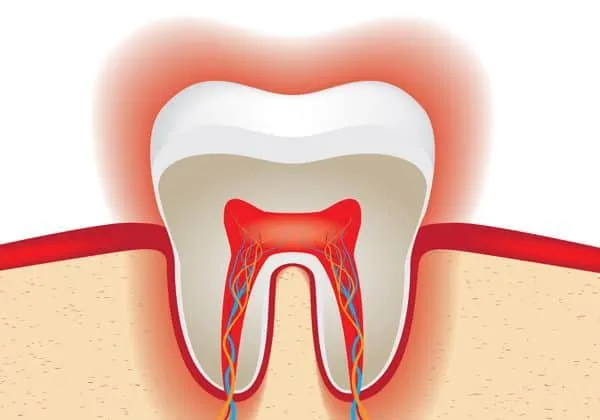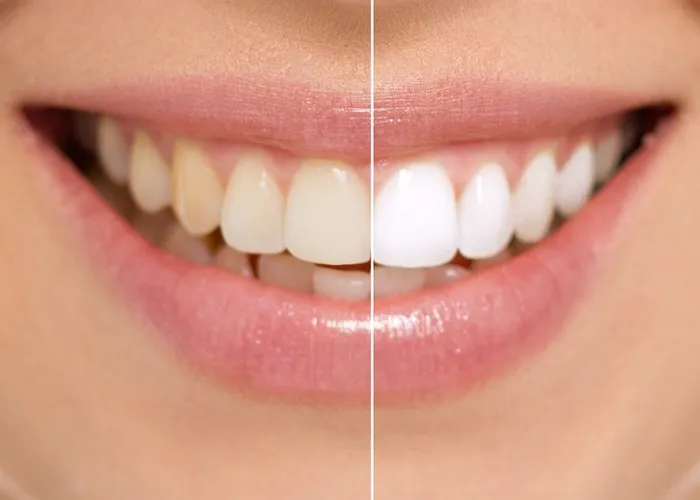Understanding Sensitive Teeth After Whitening
Teeth whitening is a popular cosmetic procedure that can significantly enhance your smile. However, a common side effect is temporary tooth sensitivity. This sensitivity occurs because the whitening agents, typically hydrogen peroxide or carbamide peroxide, penetrate the enamel and dentin of the teeth. This process can irritate the nerves within the teeth, leading to discomfort. Understanding why this happens and how to manage it is crucial for a comfortable whitening experience. It’s important to remember that sensitivity is usually temporary and can be managed with the right approach. Knowing the causes and available solutions will help you maintain a bright smile while minimizing any discomfort.
Causes of Sensitivity Post-Whitening
Several factors contribute to tooth sensitivity after whitening. The primary cause is the bleaching agents themselves. These chemicals can dehydrate the teeth, making them more porous and susceptible to external stimuli. Furthermore, individuals with naturally thin enamel or pre-existing dental issues, such as small cracks or cavities, may experience heightened sensitivity. The intensity of the whitening treatment also plays a role; stronger concentrations of whitening agents can lead to greater sensitivity. Another contributing factor can be the use of whitening trays that don’t fit properly, potentially allowing the whitening gel to come into contact with the gums, causing irritation and subsequent sensitivity. Understanding these causes can help you take proactive steps to manage and alleviate discomfort.
How Whitening Products Affect Teeth

Whitening products work by breaking down stains and discoloration on the teeth. This process involves the penetration of the bleaching agent through the enamel and into the dentin, the layer beneath the enamel. This can temporarily disrupt the tooth’s natural protective barrier, making it more vulnerable to sensitivity. The bleaching agents oxidize the stains, which is how they remove them. In the process, the tubules in the dentin, which contain nerve endings, can become more exposed. This exposure causes sensitivity when hot, cold, sweet, or acidic substances come into contact with these nerves. The good news is that this effect is temporary for most people, and there are many effective methods to reduce and manage the sensitivity experienced after whitening.
Top 5 Solutions for Sensitive Teeth
Use a Desensitizing Toothpaste
Desensitizing toothpastes are specifically formulated to help relieve tooth sensitivity. These toothpastes typically contain ingredients such as potassium nitrate or stannous fluoride, which work by blocking the tubules in the dentin or by strengthening the enamel. Using desensitizing toothpaste a few weeks before whitening can help prepare your teeth and reduce post-whitening sensitivity. It is recommended to switch to desensitizing toothpaste a couple of weeks prior to the whitening treatment and to continue using it throughout the whitening process and for several weeks afterward for optimal results. Consistent use of desensitizing toothpaste provides a protective layer, reducing the transmission of stimuli to the nerve endings.
How Desensitizing Toothpaste Works

Desensitizing toothpastes work through two primary mechanisms. Potassium nitrate helps to block the nerve signals that cause pain, preventing the sensation of sensitivity. Stannous fluoride, on the other hand, helps to strengthen the enamel and block the tubules, creating a barrier that protects the nerves. The specific action depends on the active ingredient, but both aim to reduce the ability of external stimuli to reach the nerves within the tooth. The effectiveness of these toothpastes increases with consistent use, as they build up a protective layer over time. Using them twice daily is generally recommended for the best results. Remember to follow the instructions on the toothpaste package for optimal efficacy.
Recommended Desensitizing Toothpaste Brands
Several brands offer effective desensitizing toothpastes. Sensodyne, Pronamel, and Colgate Sensitive are popular choices that contain either potassium nitrate or stannous fluoride. When selecting a desensitizing toothpaste, look for products that are specifically designed for sensitivity relief. Reading reviews and checking the product’s active ingredients can help you choose the right option. Try a few different brands to see which works best for you, and consult with your dentist if you have any questions or concerns. Many dentists recommend these brands because of their proven effectiveness in reducing tooth sensitivity. Consider incorporating one of these brands into your daily oral hygiene routine before and after your whitening treatment.
Apply Fluoride Treatments
Fluoride treatments can significantly reduce tooth sensitivity by strengthening the enamel and blocking the tubules in the dentin. Fluoride helps to remineralize the enamel, making it more resistant to acid attacks and external stimuli. These treatments are available both professionally, from your dentist, and in over-the-counter products. Applying fluoride can create a protective layer on the teeth, reducing sensitivity and promoting overall oral health. The benefits are often noticeable within a few days to weeks of consistent use, making it a highly effective solution for managing post-whitening sensitivity. Regular fluoride treatments are a proactive way to maintain a healthy and comfortable smile.
Professional Fluoride Treatments

Your dentist can provide professional fluoride treatments that are more concentrated than over-the-counter options. These treatments are typically applied in the form of a gel, varnish, or foam. The dentist will apply the fluoride directly to your teeth, allowing it to penetrate and strengthen the enamel. Professional treatments are often recommended before and after teeth whitening to reduce sensitivity and protect the teeth. The benefits are immediate and long-lasting. Dentists may also use high-fluoride toothpaste in-office or prescribe it for home use. These treatments can be especially beneficial for people who experience significant sensitivity after whitening. Consult with your dentist to determine the best fluoride treatment plan for you.
At-Home Fluoride Options
Several over-the-counter fluoride products can help manage sensitivity. These include fluoride-containing toothpastes, mouthwashes, and gels. Look for products that have a higher fluoride concentration than standard toothpastes. Use these products as directed, and avoid rinsing your mouth immediately after brushing to allow the fluoride to remain on your teeth longer. Some dentists recommend custom trays to hold the fluoride gel, ensuring optimal contact with the teeth. Consistent use of at-home fluoride treatments can improve the strength of your enamel and reduce the sensitivity experienced after whitening. It is essential to follow the product instructions and consult your dentist for recommendations tailored to your specific needs.
Adjust Your Whitening Routine
Modifying your whitening routine can help minimize sensitivity. This includes reducing the frequency of treatments and choosing milder whitening methods. Giving your teeth a break between whitening sessions allows them to recover and reduces the potential for sensitivity. By making these adjustments, you can maintain a brighter smile while keeping your teeth comfortable. Listening to your teeth and adjusting accordingly is essential for a successful whitening experience. You can often still achieve your desired results by making these simple adjustments to your regimen, and it’s often worth the effort to avoid unnecessary discomfort.
Reduce Whitening Frequency

If you’re experiencing sensitivity, reducing how often you whiten your teeth is a simple yet effective solution. Instead of whitening daily or multiple times a week, try whitening every other day or even less frequently. This gives your teeth time to recover and reduces the cumulative effect of the whitening agents. You can also take breaks from whitening altogether, allowing your teeth to return to their normal state before continuing. By spacing out your whitening treatments, you can maintain a brighter smile while reducing the likelihood of sensitivity. This approach allows you to enjoy the benefits of whitening without the associated discomfort.
Choose a Different Whitening Method
Consider switching to a different whitening method if you find that your current one is causing too much sensitivity. Options include over-the-counter whitening strips, trays, or professional treatments. Some products use lower concentrations of whitening agents, which may be gentler on your teeth. Your dentist can offer professional treatments that are tailored to your needs, potentially with lower concentrations or desensitizing agents built into the whitening process. Discuss your options with your dentist to find the most suitable and comfortable method. Exploring alternative whitening methods is a good strategy to achieve a brighter smile without significant discomfort.
Consider Over-the-Counter Pain Relievers
Over-the-counter pain relievers can provide temporary relief from sensitivity. These medications can help manage any discomfort experienced after whitening. However, it is essential to use them as directed and to avoid relying on them long-term without addressing the underlying cause of the sensitivity. Pain relievers can provide much-needed comfort, allowing you to go about your daily activities without constant pain. While these are not a long-term solution, they can be helpful during the initial days or weeks after whitening. If sensitivity persists, consult with your dentist to explore other solutions.
Types of Pain Relievers

Common over-the-counter pain relievers include ibuprofen (Advil, Motrin) and acetaminophen (Tylenol). Ibuprofen is an anti-inflammatory drug that can reduce pain and inflammation, making it a good choice for sensitivity. Acetaminophen is a pain reliever that can help manage discomfort without the anti-inflammatory effects. Always follow the recommended dosage instructions and do not exceed the maximum daily dose. Consult with your healthcare provider if you have any underlying health conditions or are taking other medications. It’s also important to remember that pain relievers only offer temporary relief. If your sensitivity persists, you should seek professional dental advice.
When to See a Dentist
If your tooth sensitivity is severe, persistent, or accompanied by other symptoms such as gum inflammation, it’s crucial to see a dentist. Your dentist can assess the cause of the sensitivity and recommend appropriate treatment. They may identify underlying dental issues, such as cavities or cracks, that need to be addressed. They can also provide professional treatments, such as fluoride applications or desensitizing agents, to manage the sensitivity. Regular dental check-ups can also help prevent future sensitivity issues. If the pain is unbearable or lasts for more than a few weeks, consulting your dentist is essential. Don’t hesitate to seek professional help if you are concerned about your oral health.
Practice Proper Oral Hygiene
Maintaining good oral hygiene habits is essential for managing and preventing tooth sensitivity. This includes using a soft-bristled toothbrush, brushing gently, and using the right toothpaste. These practices can help protect your enamel and reduce the risk of sensitivity. Proper oral hygiene is a cornerstone of healthy teeth and gums. It’s an easy yet crucial way to keep your teeth in good condition. Furthermore, good oral hygiene minimizes any potential problems that may be contributing to the sensitivity issues.
Gentle Brushing Techniques

Brushing your teeth gently is key to preventing sensitivity and protecting your enamel. Use a soft-bristled toothbrush and apply minimal pressure. Avoid scrubbing vigorously, as this can wear away the enamel and expose the dentin, leading to sensitivity. Brush in small, circular motions and focus on cleaning each tooth surface thoroughly. It is recommended to brush for at least two minutes twice daily. Ensure you brush your tongue to remove bacteria and keep your breath fresh. Regular and gentle brushing is vital for maintaining good oral health and reducing the likelihood of sensitivity.
Choosing the Right Toothbrush and Toothpaste
Selecting the right toothbrush and toothpaste is crucial for managing sensitivity. Always choose a soft-bristled toothbrush to avoid damaging your enamel. Look for toothpastes that are specifically designed for sensitive teeth. These toothpastes contain ingredients like potassium nitrate or stannous fluoride, which help to block pain signals and strengthen the enamel. Avoid toothpastes with harsh abrasives, which can contribute to enamel erosion and sensitivity. Consider switching to an electric toothbrush with a pressure sensor to ensure you are brushing gently. Make sure that the chosen toothpaste has the ADA seal of approval to ensure that it’s effective and safe.
Preventing Future Sensitivity
Preventing future sensitivity involves a combination of good oral hygiene, regular dental check-ups, and a balanced diet. These proactive steps can strengthen your teeth, reduce the risk of sensitivity, and promote overall oral health. By taking care of your teeth and gums, you can enjoy a brighter smile with less discomfort. Preventive measures are always the most effective way to maintain healthy and comfortable teeth.
Consulting with Your Dentist
Regular dental check-ups are essential for preventing sensitivity. Your dentist can identify potential problems early on, such as cavities, cracks, or gum recession, which can contribute to sensitivity. They can also provide professional treatments like fluoride applications to strengthen your enamel. Following your dentist’s recommendations and maintaining a good oral hygiene routine is crucial for preventing sensitivity. Don’t hesitate to discuss your concerns with your dentist. They can offer personalized advice tailored to your specific needs and recommend the best strategies for maintaining healthy teeth. Your dentist is your best resource for preventing future sensitivity issues.
Maintaining a Healthy Diet
Your diet plays a significant role in your oral health and can impact tooth sensitivity. Limit your intake of acidic foods and drinks, such as citrus fruits, carbonated beverages, and sugary snacks, as these can erode your enamel. Eat a balanced diet rich in calcium and other nutrients that support strong teeth. Rinse your mouth with water after consuming acidic foods to neutralize the acids and prevent enamel erosion. Drinking plenty of water helps to maintain saliva production, which is crucial for neutralizing acids and washing away food particles. By making smart food choices, you can boost your oral health and reduce the risk of sensitivity. A healthy diet is key to maintaining overall oral wellness.
Regular Dental Check-ups
Scheduling regular dental check-ups and cleanings is a cornerstone of preventing sensitivity and maintaining healthy teeth and gums. Your dentist can detect any early signs of potential issues, such as cavities or gum disease, which can lead to sensitivity. They can also provide professional cleanings to remove plaque and tartar, reducing the risk of inflammation and sensitivity. Regular check-ups allow your dentist to monitor your oral health and offer personalized advice and treatment options. Aim to visit your dentist at least twice a year. Maintaining regular check-ups is one of the most effective ways to maintain a healthy, bright smile and prevent sensitivity.
